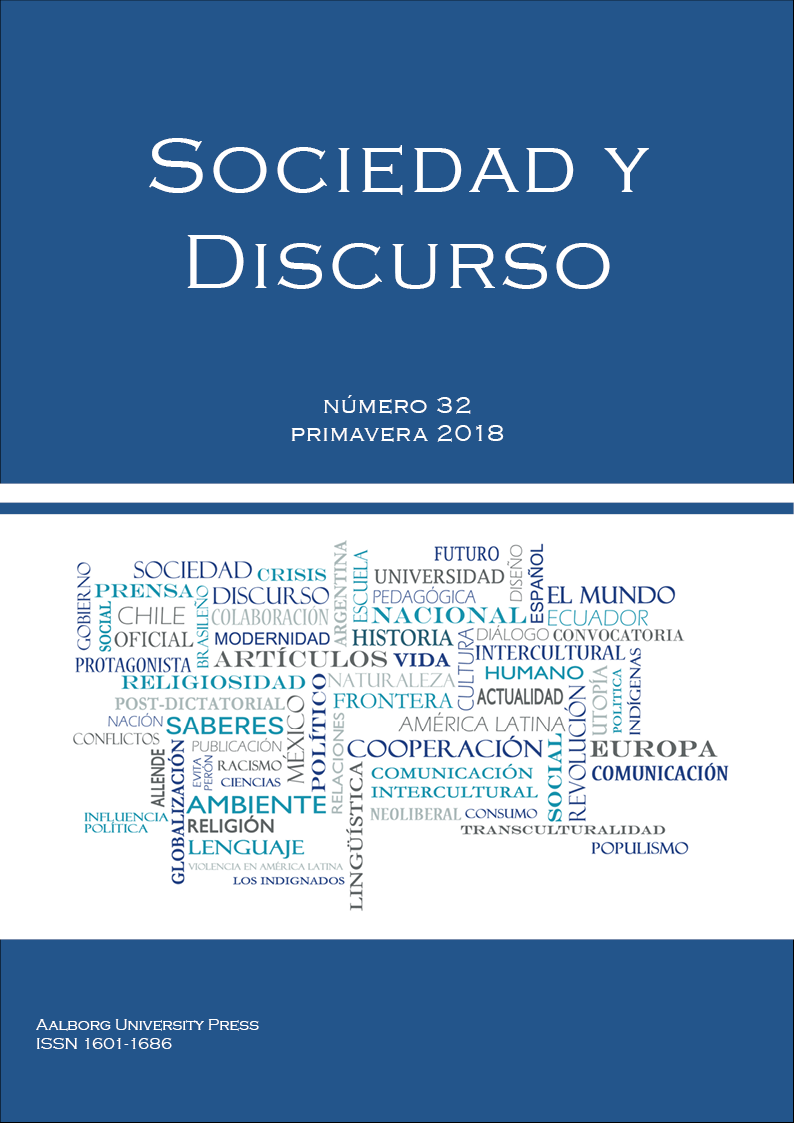“Todos somos Marichuy”: género, poder y utopía en los zapatistas hoy
DOI:
https://doi.org/10.5278/ojs.s%20&%20d.v0i32.2283Abstract
Abstract: In this article, the decision of the Zapatistas to present an independent candidacy for the Mexican presidential elections 2018 represented by Marichuy is analyzed. The hypothesis is that the Zapatista proposal represented by an indigenous woman seeks to create awareness among the subalterns in Mexico that their difficulties in real life are transformable.
This hypothesis is based on two main theories: the formation of critical consciousness through "conscientização" established by Paulo Freire, and a political theory developed by Enrique Dussel, in which the concept of “power” resembles the practice of power used by the zapatistas in their autonomous forms of government. Finally, utopian thoughts combined with the historical development of the “Law of Women" will be used to conclude that the gender struggle in Mexico is a representative of all other indigenous struggles today.
Keywords: utopia, woman, Mexico, zapatistas, CNI, Marichuy.
Downloads
Published
Issue
Section
License
Articles published in Sociedad y Discurso are following the license Creative Commons Attribution-NonCommercial-NoDerivs 3.0 Unported (CC BY-NC-ND 3.0)
Authors retain copyright and grant the journal right of first publication with the work simultaneously licensed under a Creative Commons Attribution License: Attribution - NonCommercial - NoDerivs (by-nc-nd). Further information about Creative Commons


